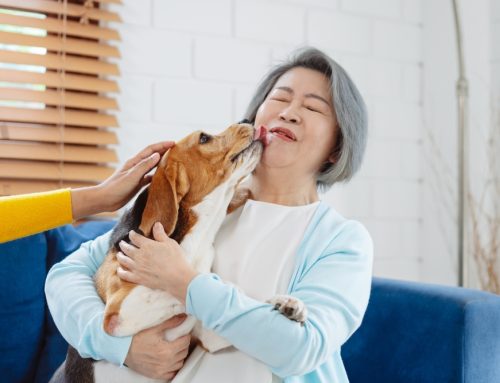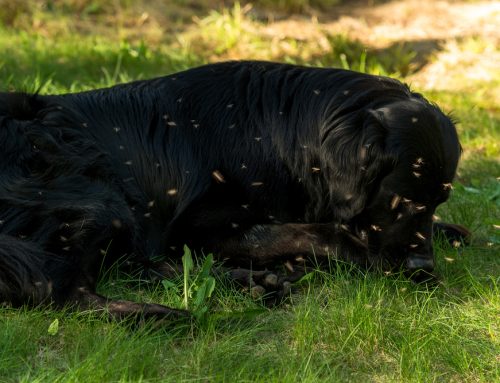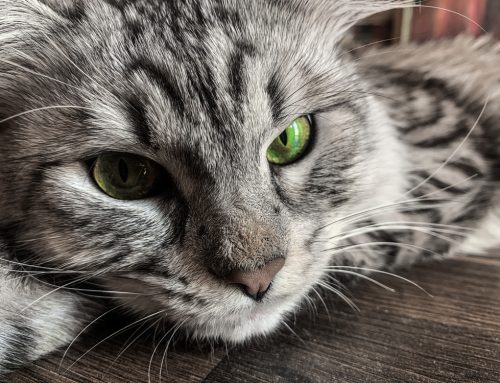 Just about every pet owner is guilty of sharing people food with their pets at some point or another. Sometimes this means sharing the food off of your plate at the end of a meal, or it means giving your four-legged friend a special “treat” just for being the loving and loyal companion that he or she is. And who hasn’t had a pet snag something off the counter?
Just about every pet owner is guilty of sharing people food with their pets at some point or another. Sometimes this means sharing the food off of your plate at the end of a meal, or it means giving your four-legged friend a special “treat” just for being the loving and loyal companion that he or she is. And who hasn’t had a pet snag something off the counter?
As a pet owner, you need to be aware of those foods that are both good and bad for your pet to consume. While some people foods are fine, and a few are even beneficial, there are six foods in particular that can be detrimental to your pet’s health. Here’s what to know about pets and people food:
Chocolate has two ingredients (caffeine and theobromine) that can lead to toxicosis and pancreatitis. When it comes to this food, all chocolate is bad chocolate, but it is especially important to remember that the darker the chocolate, the more dangerous it is to your pet.
Bread dough poses a double threat to your pet. By ingesting raw bread dough, your pet not only faces the very real danger of having the dough rise in the moist environment of his stomach causing extreme discomfort, but also the yeast in raw bread dough releases alcohol that can cause your pet to become intoxicated.
Ethanol (ethyl alcohol, grain alcohol and drinking alcohol), most often found in liquor,should never be given to pets. But ethanol isn’t exclusive to drinking alcohol; this “food” can also be found in some cough syrups and first-aid treatments, so be careful with your over-the-counter medicines, as well as the beer you leave sitting on the patio.
Moldy Foods are the home of bacterias and toxins which can cause serious threats to your pet’s health if ingested. Trash, moldy fruit, and the carcasses of dead animals are the main sources of moldy food ingestion by pets, so be sure to keep your pet’s living environment clean.
Onions and Garlic, if ingested by your pet, can cause serious damage to your pet’s red blood cells which, in turn, can lead to anemia.
Avocado contains a toxin found in every part of the plant (seeds, leaves, fruit, bark), that can cause a wide range of health problems. The pit is especially dangerous because it could lead to a gastrointestinal block in your pet’s digestive tract. While a small part of the avocado fruit can be beneficial to pets, it’s best to keep this food away from pets altogether.
Xylitol, an artificial sweetener found in some baked goods and sugar-free chewing gums, is especially harmful to dogs, causing an extreme drop in blood sugar levels that could lead to liver failure.
A number of other human foods that are hazardous, some specifically to dogs, include grapes and raisins, hops, apple seeds, macadamia nuts, and undercooked or raw meat or eggs (as pets are susceptible to food-borne illness’, just like us).
But don’t let the bad foods dissuade you from treating your pet or feeding him people food that could improve his coat and help with his overall health.
Fish, specifically salmon,adds omega-3 fatty acids to your pet’s diet that help improve his coat and heart health.
Eggs (cooked) provide protein, so scramble some up or offer a hard-boiled egg as a daily addition to your pet’s diet.
Vegetables (pumpkin, baby carrots, sweet potatoes, green beans) are low in fat and high in fiber, which helps with digestive health and obesity.
Certain Dairy Products: for dogs this means yogurt, which improves digestion, whereas cats can benefit from eating small amounts of cheese, not only because it helps with digestive health but also provides added calcium to your cat’s diet.
Your pet is part of your family, so it’s understandable that you want to sneak a special treat to your four-legged friend every now and then. Just be mindful of what you’re feeding your pet, and keep in mind that human foods can pack on the pounds and affect your pet’s overall nutrition as well.
If you have any questions about pets and people foods, or if you suspect that your pet has eaten something toxic, please don’t hesitate to call us for help. We’re here to answer your questions and care for your pet, no matter what.
 Just about every pet owner is guilty of sharing people food with their pets at some point or another. Sometimes this means sharing the food off of your plate at the end of a meal, or it means giving your four-legged friend a special “treat” just for being the loving and loyal companion that he or she is. And who hasn’t had a pet snag something off the counter?
Just about every pet owner is guilty of sharing people food with their pets at some point or another. Sometimes this means sharing the food off of your plate at the end of a meal, or it means giving your four-legged friend a special “treat” just for being the loving and loyal companion that he or she is. And who hasn’t had a pet snag something off the counter?





